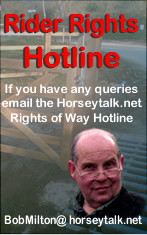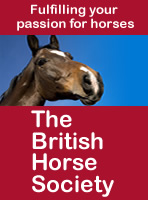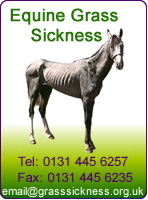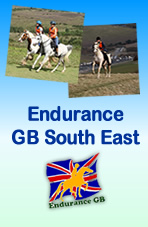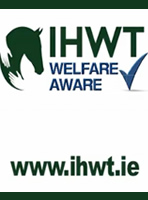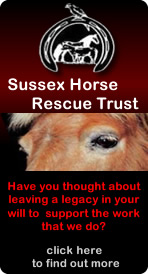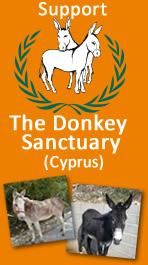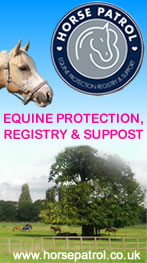
Horseytalk.net/Hoofbeat EXCLUSIVE
RIDER RIGHTS

Hawkesbury, Assley and Hareley and Inglestone commons
Access for rights of ways of horses
What is your policy on horse riders riding across common land?
Gaz Keen e-mailed Natural England
 I am researching the current rights of access that horses have to the local
countryside. We do have bridleways, but many simply lead to a dead end or
terminate on a major A road and neither of these are are in the interests of
health & safety of the well being of the large sector of society that rides.
I am researching the current rights of access that horses have to the local
countryside. We do have bridleways, but many simply lead to a dead end or
terminate on a major A road and neither of these are are in the interests of
health & safety of the well being of the large sector of society that rides.
What is your policy on horse riders riding across common land? Some local councils have invoked a by law that says no exercising or breaking in of horses on commons. We think this was created in the last century to prevent the commons being used for commercial purposes but that it did not stop horses being used for recreational use.
Our particular council, South Gloucestershire, is saying that Natural England do not want horses on their common and has quoted this as one of the reasons for enforcing this by law at a recent community meeting. Their stance is that there is no point in having any further meetings because there is nothing to discuss. This seems to go against your aims of reconnecting people with nature. Obviously horse riders needs have to be balanced against any specific conservation initiative, such as not riding through an SSSI, but this view extend to riding through all woodlands and commons?
We are very disappointed that such a large section of society should be excluded from using the commons. My view was that the commons was set up for the use of common people and if this is true then it is discrimination. When looking at the large volumes of traffic now on the road it seems common sense to get horses riders somewhere safe to ride?.
Do you have an official policy that can help us understand why our Local Council appears to be shutting the door in our face and quoting Natural England as one of the reasons?
The right of access does not extend to activities such as horse riding, unless the landowner's permission has been obtained.
Matt Lowe, Open Access Contact Centre, Natural England - replied
The Countryside and Rights of Way (CRoW) Act allows a right of access on foot to areas which have been mapped as Registered Common Land or Open Country (mountain, moor, heath and down). This right of access, however, does not extend to activities such as horse riding, unless the landowner's permission has been obtained.
Some areas of Open Country or Registered Common Land may have higher access rights, such as horse riding, through access agreements or local byelaws which pre-date the CRoW Act - particularly those relating to the so-called 'urban commons' that fall within former boroughs or urban districts. The local access authority (usually the County Council for the land) would be able to confirm whether any higher access rights apply to a particular area of common land.
Through the statutory framework of rights of way improvement plans (ROWIPs) and local transport plans (LTPs) local highway authorities are able to improve and extend local access provision for horse-riders. It is also possible that the law in this area will be reformed by Defra to give effect to the consensus recommendations of our Stakeholder Working Group on Unrecorded Rights of Way, which can be viewed HERE. This may lead to the filling of some of the current gaps in local riding networks.
While you are right that there are sometimes conservation reasons for imposing local restrictions on riding, our approach is to limit people's enjoyment for this reason only where strictly necessary. If you are aware of any particular case where you think we have promoted unnecessary restrictions of this type, please let us have the details and we will look into it.
As for Natural England do not believe everything you are told.
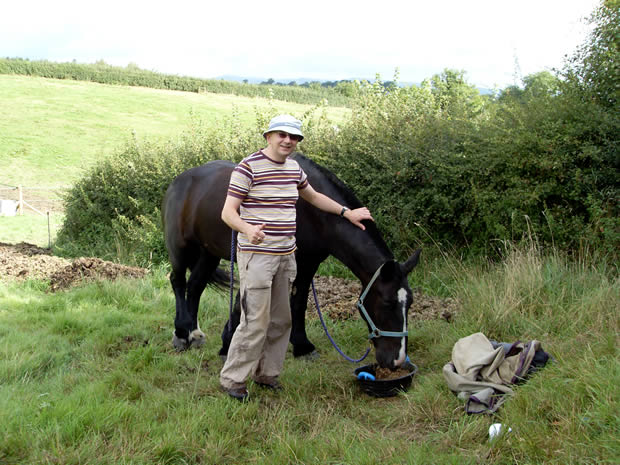
Gary Keen and Bertie at tea time.
Says Gary, "He is a nice reliable hack and part of the family, and deserves
to be offered safe routes to walk on rather than have to put up with dangerous
traffic."
Bob Milton - e-mailed Gaz Keen
The Council is bound by the Commons Act 2006 s38 just as all other registered common managers and landowners.
As far as the landowner is concerned once a scheme is in place they have no more effective interest in the land as far as public recreation goes as that is the dominant tenement of a Scheme of Regulation under the Commons Act 1899.
As for Natural England do not believe everything you are told. This is a stance taken by misguided individuals usually as a result of Higher level stewardship and is wrong. HLS and SSSI regulations have no effect on pre existing public access and can not be used to displace or remove lawful public recreational access, which in this case includes riding.
Bob Milton added
This is not just a Highway Authority matter as in the rights of way as a footpath only but as far as common land enforcement it is open to the County council and the Local or district Authority and any person, which includes corporate bodies such as the BHS and the Open spaces society or a Bridleways Group to take action in the county court or by judicial review.
Natural England's interpretation of the rules under which they work varies with the degree of environmental extremism that applies to its local officer or project officer.
Highways Authorities and Natural England may be strongly influenced by a high profile landowner
Adrian Bigg, BHS County Access and Bridleways Officer, Cornwall and Regional Access and Bridleways Officer for the South West - e-mailed Gaz
You have already received very good advice on the issue. Further observations I can make are
- Highways Authorities and Natural England may be strongly influenced by a high profile landowner
- Commons Enforcement comes under Highways Authority responsibilities (around in a circle!).
- Natural England is often supportive of continued horse access where it already takes place on commons. iv Establish the facts and ask questions formally off both South Gloucestershire and Natural England.
I am not clear from your email how long horses have used the commons for. If they have, how is that consistant with the statement, as reported that Natural England as have a policy of not allowing horses on the common, and the landowner, Sir John Jenkinson, saying no horses should be on his land.
In the short term the S15 issue is the one to pursue.
"Horseriders
have the right to "fresh air and exercise"
Lois Eyre, County Access & Bridleways Officer, B.H.S. Gloucestershire Chair, Mid Cotswolds Tracks and Trails Group - e-mailed Gaz
I'm not sure that I can help, I'm afraid I'm very shakey on the legal intracacies, it's a specialist area; and I don't want to say anything that takes you backwards to somewhere you've already been in this process, however; I noticed that you refer to Natural England having a policy of No Horses on Commons - as quoted by South Glos. I can assure you this is not the case!
In case you haven't seen it before, I've attached the S 15 land FAQs pdf from the Natural England website - you don't have to read down very far to see it saying that in certain cases, horseriders have the right to "fresh air and exercise" too. We have recently identified several Commons here in the Gloucestershire Cotswolds where this was being contested e.g. by Parish Councillors - erroneously.
I had a look at the Defra Magic Map (the instructions for how to use it are further down the FAQ) - and found three of the four Commons you named (I couldn't find Hareley) and they are shown as S 15 land. The where you can go from there depends whether or not they are covered by any byelaws, and if they are, the precise wording of the byelaws. For example, the Malvern Hills in Worcs, are S 15 land covered by byelaws which include:
Horse Training
No person shall race, break-in or train or cause to be raced, broken in or
trained any horse on the Hills except in such places as may from time to
time be set apart by the Conservators by means of notices exhibited on the
Hills. (Section 16, 17 & 18 of 1995 Act)
Where the Conservators have by notice or sign restricted or prohibited the riding of horses over any part of the Hills or given to the owners of horses let to members of the public for hire or reward directions as to the paths or tracks to be used on the Hills no person shall without reasonable excuse ride a horse over that part affected by such notice or on any path or track on the Hills in contravention of such prohibition restriction or direction.
Horse Riding Causing Inconvenience to the Public No person shall ride a horse on the Hills to the danger, annoyance or inconvenience of any other person
- so you can ride - happy hacking - anywhere (as long as you're not racing, breaking-in or training), unless they put up notices on specific tracks.
Conversely, Cleeve Common (above Cheltenham, includes the highest point in the Cotswolds) prohibits by byelaw 11:
1 I. - Training, exercising, riding, driving, plying for or letting on hire on tile Common horses, ponies, mules, asses, or goats without a licence from the Board or their officer appointed for the purpose.
which covers pretty much anything you might do with a horse, so you can't ride there (except on the bridleways) without having bought an annual licence.
I wonder - have I understood that your Commons are covered by a byelaw which specifies 'No Exercising of horses" and, in view of the Cleeve Common byelaw which seems to draw a distinction between the two, whether it would be possible to show that 'happy hacking for the purposes of the rider's fresh air and exercise' is not the same thing as 'exercising' a horse - which would possibly have been a racehorse in the minds of the people who drew up the byelaws? I think Bob is making this point too?
And it ought to be possible to find a sufficient number of riders to put in a 'user evidence' claim on the Plummers Trench track
Bob Milton - e-mailed Lois Eyre
Riding is not unlawful on these commons and s38 commons Act 2006 applies.
I would question NE and under what powers they are seeking to remove lawful equestrian use and SG Council the same.
We are worried if we go to court and lose it may set a precedent
Gaz Keen - e-mailed Bob Milton
One thing we are worried about is if we go to court on this one and we lose it may set a precedent where all other councils ban horses based on this test case.
Whilst we are absolutely miserable, we do not want to let other horse riders suffer as well.
What do you think?
Do you agree with Gaz ? E-mail and give us your opinion.
Tell us if you are having similar problems

